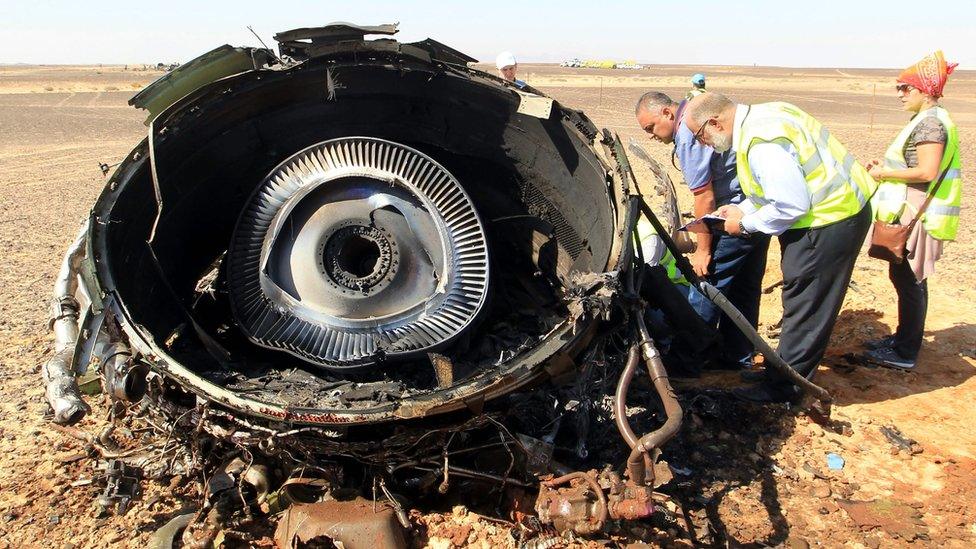Egypt's Sisi accepts Sinai jet crash was 'terrorism'
- Published

Debris from the downed jet was spread over a wide area of the Sinai desert
Egyptian President Abdul Fattah al-Sisi has officially acknowledged for the first time that the crash of a Russian airliner in the Sinai peninsula last October was a result of "terrorism".
He said the attack had been intended to damage Egypt's tourism industry and relations with Russia.
Russia has already said a bomb caused the crash in which 224 people died.
Mr Sisi had previously dismissed as "propaganda" a claim by jihadists that they brought the plane down.
The Airbus 321 operated by Russian airline Metrojet broke up in mid-air over the Sinai peninsula on 31 October.
Nearly all those killed were Russian tourists flying to St Petersburg from the Red Sea resort of Sharm el-Sheikh.
"Has terrorism ended? No," Mr Sisi said in a televised speech.
"Whoever downed that plane, what did he want? Just to hit tourism? No. To hit relations. To hit relations with Russia."

Mr Sisi did not name any group as being behind the attack.
Sinai Province, a branch of so-called Islamic State (IS), said in a statement on 31 October that it had destroyed the plane in revenge for Russian air strikes in Syria.
The group has operated in restive northern Sinai for two years, launching attacks on Egyptian security forces.
Russian security chief Alexander Bortnikov said on 17 November that "an act of terror" had brought the plane down, adding that traces of explosives had been found in the debris.
Russian President Vladimir Putin vowed to "find and punish" those behind the attack.
Egypt set up a committee to investigate the crash and until now has insisted there was no evidence of terrorist involvement in the crash.
Egyptian authorities have since hired a UK-based consultancy to tighten up security at airports.
